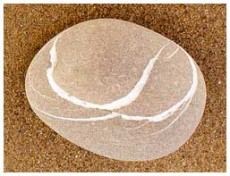
Imagine settling into this belief: “I can’t know technology.”
One of my favorite men, 31 years old, manages my web and facebook pages. A 39-year-old techy pal rescues me when my mind blanks around how to get help from a website’s “contact us” section. I once asked my sister for IT advice. She said, “You need a 6-year-old.”
I take deep calming breaths when my 35-year-old son instructs, “Mom, you click here, then you click there, then you go to this site, and taa-daa.” He laughed when I picked up a pen, scrounged some scrap paper and wrote out steps 1, 2 and 3.
Once I walked into an Apple store and sat for an hour learning the differences among passwords, passcodes and pin numbers. When I breezed in again the next day for more training, the same 20-something Genius (yes, they are called Geniuses) rolled his eyes, “Oh, it’s you again.”
Last week a millennial neighbor asked me where I keep such-and-such folders. I opened the closet door in my study to reveal manila 8 1/2 by 11-inch card stock ones. He winked and said, “old school.”
And … cookies? What? Are they sweet?
A web designer dubbed me, “Luddite.”
I am no Luddite. I do not fight technology. I do not rush to trash my iPad, iPhone, TV, Kindle or PC. I simply do not know how to use them.
Luckily I recall one of my favorite graduate school professors. “Answers are not as crucial as great questions,” Will Callender, Ph.D., taught. Our work would not be graded on anything we’d solved, nor on anything we knew for sure. Will dared us not to know, to be in what Zen master Seungsahn called “don’t know mind,” that spacious state before ideas, opinions, and concepts form. I did have a few ideas, opinions and concepts before I owned devices. Now I have a few devices and no ideas.
“Lifelong learners,” Will called us. He’d ask, “What is your current learning project?” and “What questions do you have?”
Will cared about living and loving the questions, as Rilke wrote in 1903 in “Letters to a Young Poet”: “Don’t search for answers, which could not be given to you now, because you would not be able to live them. And the point is to live everything. Live the questions now. Perhaps then, someday, you will gradually, without even noticing it, live along into the answer.”
As an iPhone user who has never downloaded one app, I do have questions. One inquiry boomeranged to me, though, from my friend Sarah when I told her, “I don’t know how to sync my phone to my computer.” I patted my back just to know what “sync” meant.
She asked, “Are you willing to learn?”
Will might note that “Are you willing to learn?” is a great question. “No,” I said with a fist pump.
I had forgotten we are lifelong learners, forgotten the words that Will assigned from Brenda Ueland’s book “If You Want To Write.” To write, she said – this advice expands to lifelong learning of everything – “You should feel like a child stringing beads in kindergarten – happy, absorbed and quietly putting one bead on after another.”
My recurrent learning project? French. I do feel like a kindergartner in what Buddhists call and what Will encouraged as “beginner’s mind.” I word-search, goof up grammar, make mistakes, abuse adverbs. True, I am happy and absorbed when I study. The big goal crushes me, though, that of entering what could pass as conversation 50 years post high school French.”One bead,” I whispered as I phoned for help from 70-year-old technology and French-loving Sarah again. “On my way,” she chirped.
Will insists no one is too old, and Sarah proves the truth of lifelong learning. Thanks to Sarah, my phone now has four French apps. Thanks to Will, I am, some of the time, willing to be willing and almost able to use two of them.


